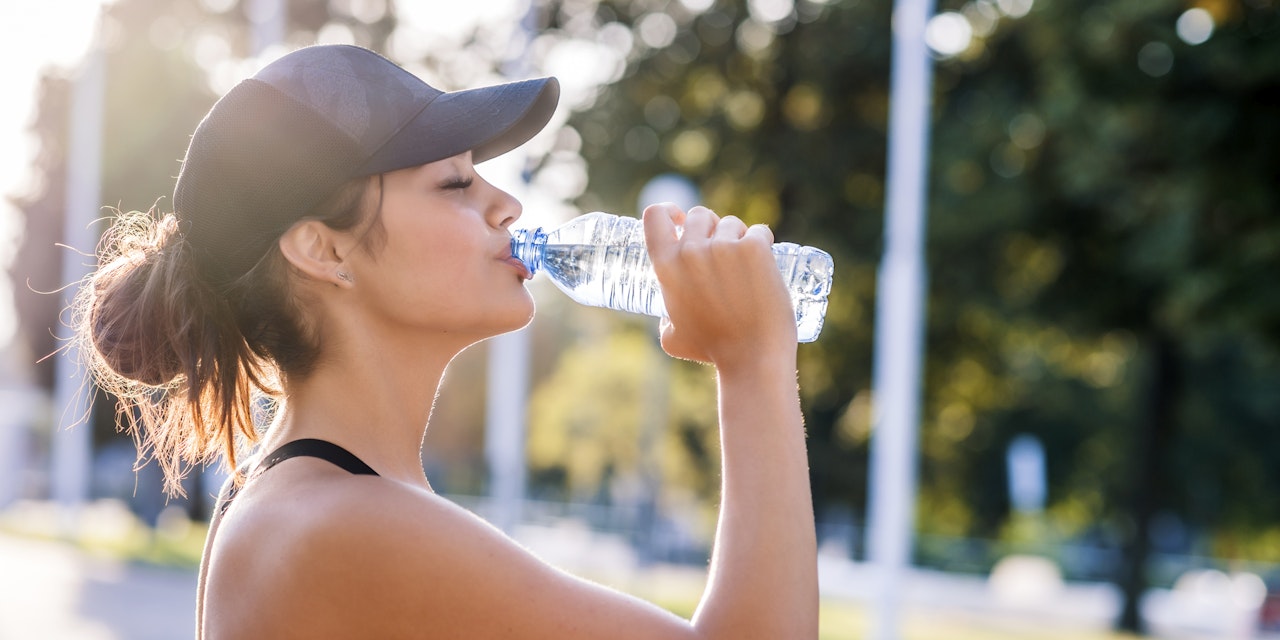Nutrition for summer: hydration highlight
Learn how to stay hydrated this summer with flavorful fruits, vegetables, and refreshing drinks.
- Published: 5/17/2022
- 4 min. read

- Published: 5/17/2022
- 4 min. read
Summer is the season to soak in the sun and be active outdoors while the weather is warm. It’s important to stay safe – with hotter temperatures comes an increased risk of dehydration. Learn how to stay hydrated this summer with flavorful fruits, vegetables, and refreshing drinks.
What is dehydration?
What exactly is dehydration? Dehydration happens when your body loses more fluids than it takes in (1). This may happen from time to time and can typically be fixed simply by rehydrating. However, if it isn’t treated properly for an extended period, or becomes too extreme, it can become a dangerous problem.
Dehydration can lead to complications such as heat cramps, heat exhaustion, heatstroke (when our body can’t regulate its temperature), low blood volume, and seizures due to a loss of electrolytes.
Here are some of the first signs of mild dehydration. Use these as a signal to consume some extra fluids:
- Dry mouth
- Increased thirst
- Decreased urination
- Fatigue
- Lightheadedness
- Constipation (2)
Another easy way to know if you’re drinking enough water is by taking a peek at your urine. If the color is dark, it may be a sign that you aren’t drinking enough.
But there’s no need to have the summer blues, there are plenty of ways to prevent dehydration with nutritious foods and fun drinks.
Say hello to hydration
The general recommended water intake for women over the age of 19 is around 2.2 liters (9 cups) per day and for men of the same age to drink 3 liters (13 cups) per day (3). We should aim for this amount in general, although all individuals have different needs.
During the warmer months, we need more because we tend to lose a lot of fluids through sweat. This is a self-protective method – when we sweat, it evaporates from our skin, creating a cooling effect (4). When the sun is strong, especially in more humid climates, we require more water. Also, when we get a killer workout in and that sweat drips down our face, we need to replenish it.
One surprisingly good way to get fluids in is through food!
Get fluids with food
There are plenty of delicious summer fruits and vegetables that contain a good amount of water. Some of the most hydrating ones are 90% water (5)! Snack on these to up fluid intake on a hot summer day:
- Watermelon
- Strawberries
- Cucumber
- Tomatoes
- Oranges
- Peaches
- Lettuce
Check out this delicious recipe that cools you off and keeps you hydrated: Watermelon Slushie
Salt balance when sweating
Salt and other electrolytes (calcium, potassium, magnesium) are also lost with sweat. These are essential for our basic body functions such as nerve, muscle, and heart contractions (6). When our electrolytes are out of balance, we’re at risk for irregular heartbeats, fatigue, diarrhea, and vomiting.
To prevent salt and electrolyte depletion when sweating a lot, it's important to consume foods and drinks with electrolytes such as sports drinks (mostly needed if performing endurance training for longer than one hour), coconut water, salt-containing broths, and fruits and vegetables.
Beware of booze
Although a nice tall glass of beer or a fruity cocktail seems like an excellent way to cool off and relax after a long, hot day, it’s important to be careful with the amount. That’s because alcohol is dehydrating. Alcohol is a diuretic, which causes our body to remove fluids from the blood via the kidneys much faster than other fluids (7).
As a rule of thumb, switch off and drink a glass of water with every alcoholic drink you have.
Stay safe in the sun
We all know by now that spending too much time in the sun without sunscreen can increase the risk of skin cancer. But did you know it can also dehydrate you?
A sunburn is skin damage from too much UV exposure. Burns draw fluid to the skin surface and away from the rest of the body as well as increase your temperature. It’s important to up your fluids if you’re exposed to the sun for longer periods.
Track your fluids
It can be difficult to remember to drink enough water. To make sure you have enough, download Lifesum and use our handy fluid tracker!
All of the content and media on Lifesum is created and published for information purposes only. It is not intended to be used as a substitute for medical advice or treatment. Users should always consult with a doctor or other health care professional for medical advice.
7 references (hide)
All of the content and media on Lifesum is created and published for information purposes only. It is not intended to be used as a substitute for medical advice or treatment. Users should always consult with a doctor or other health care professional for medical advice. If you have or think you are at risk of developing an eating disorder, do not use the Lifesum app and seek immediate medical help.